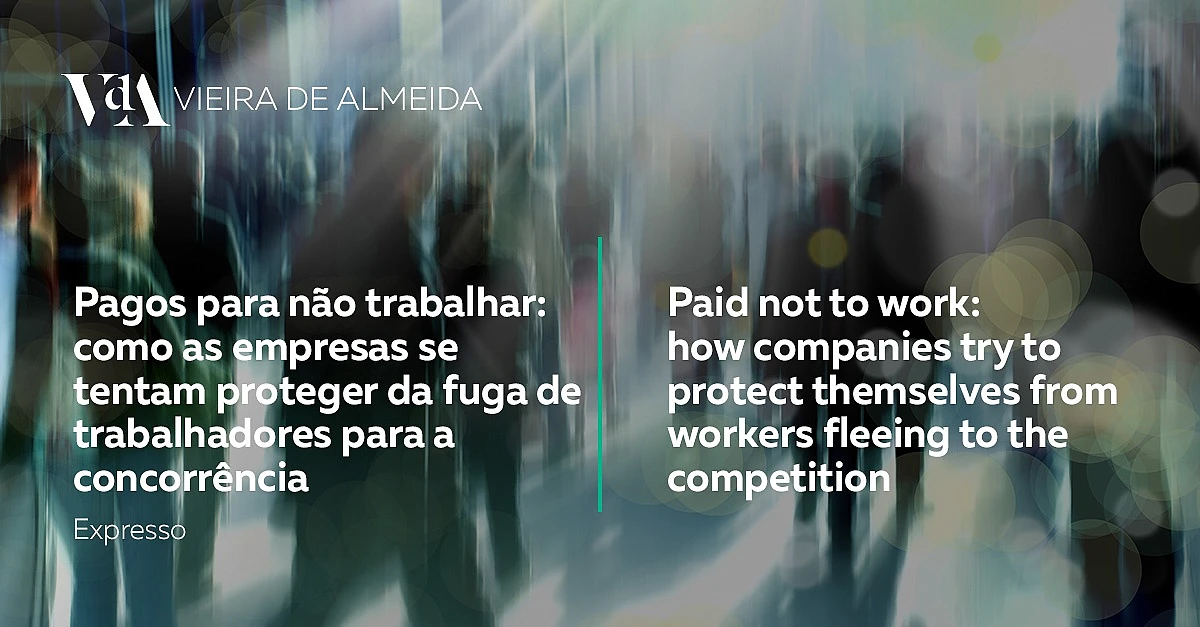Américo Oliveira Fragoso is quoted in an article in Expresso entitled ‘Paid not to work: how companies try to protect themselves from workers fleeing to the competition’, which deals with the use of non-compete agreements in the labour market.
This method, established in the Labour Code, prohibits workers from joining competing companies for a certain period of time, in return for payment of financial compensation. Although traditionally applied to top managers, these agreements have been increasingly used to cover other strategic functions in different sectors.
Américo Oliveira Fragoso explains that ‘these agreements can only be applied to activities whose exercise could cause harm to the employer’. In addition, he emphasises that the limitation imposed on the worker ‘can only be valid for two years, and can be extended to three years in the case of roles involving a trust relationship or access to sensitive information in terms of competition’.
The VdA lawyer also points out that the validity of these pacts depends on the fulfilment of specific legal requirements, such as the existence of a fair and proportional financial compensation. The absence of this compensation, or of a clear criterion for calculating it, can invalidate the agreement.
The growing adoption of this clause by technology, financial and industrial companies reflects on the importance of competition protection, but also generates debate about its limits and effects on career progression.
- This article is available here.
